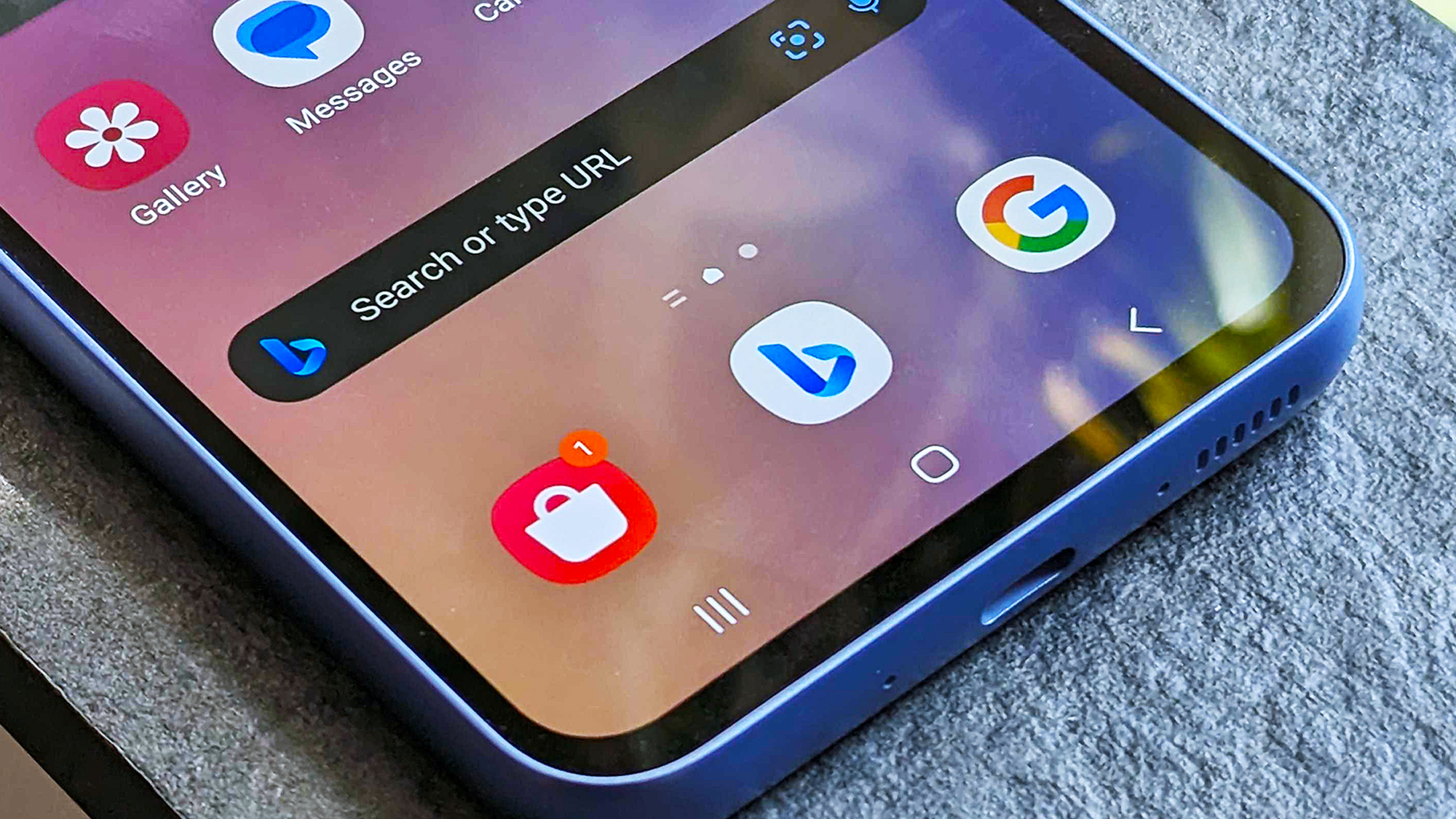
Samsung's Galaxy phones and Google's Android mobile operating system are inextricably intertwined, however, a new report suggests that despite this long-standing relationship, the South Korean phone maker is considering swapping out the default search experience on its phones from Google's established service to Microsoft's Bing.
A report from the New York Times speaks to Google employees' surprise at the news that Samsung is considering changing the default search engine on its devices to Microsoft's once-maligned alternative, inciting “panic,” according to internal messages from the search giant that were seen by the NYT. As such, come the launch of the expected Galaxy S24, new owners to some of the best Samsung phones may be met with a markedly different search experience.
When word of this potential change broke internally, Google reportedly put a call out for employees interested in working on a pitch to reassure Samsung – a call that was reportedly met with "emojis and surprise" according to the NYT's report.
Word of this possible change comes to light after a spate of developments surrounding AI-powered search from various companies; with Google seemingly scrambling to push a polished product out to consumers to rival Microsoft's ChatGPT-supported Bing experience, with Google Bard still playing catch-up for the time being.
If Samsung were to make this monumental switch, it could cost Google an estimated $3 billion in annual revenue and would bring an end to a 12-year partnership that has seen Google's search serve as the default option for Samsung Galaxy users in most markets internationally. At the time of writing, however, the contract between Samsung and Google is still being negotiated, meaning there's every chance Google search will remain the out-of-box choice for now.
Android is already widening its search
Although most Samsung Galaxy users expect and accept Google as the default search provider on their smartphones (and have done for years), some already get given a choice between a series of alternatives from the get-go.
Set up a Samsung Galaxy phone in Europe and you'll likely encounter an additional screen (formally referred to as the 'Choice Screen') during the process titled 'Choose your search engine,' which – as you might guess – throws out a number of alternative search providers alongside Google, including Ecosia, Bing, DuckDuckGo, among others.
This option went into effect in early 2020 after Google was billed $5 billion in anti-trust fines by the European Commission, the justification for which was partly due to the way Google's search services and web browser (Chrome) come as standard on the majority of Android devices worldwide.
With the outcome of this development still undecided, the ball genuinely seems to be in Google's court, or more specifically what it's able to produce in terms of AI-supported search experiences and whether they'll be enough to continue to woo Samsung, who's eyes have already clearly been caught by Microsoft's efforts with ChatGPT and Bing.







